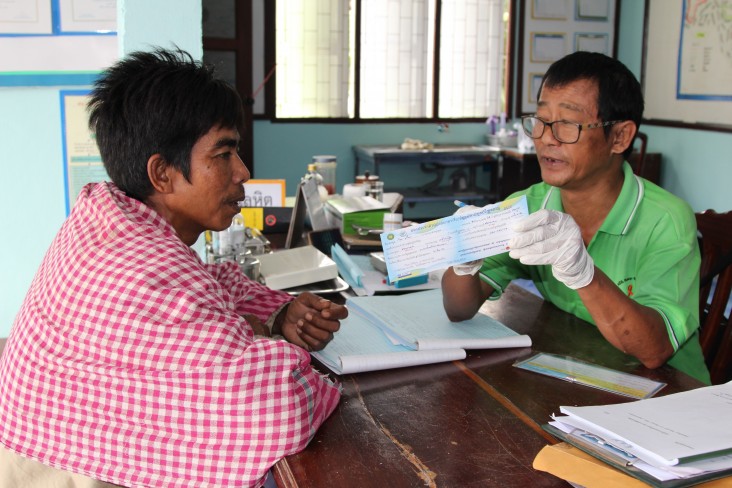
For Immediate Release
BANGKOK - Marking World Malaria Day, the U.S. Agency for International Development’s (USAID) Regional Development Mission for Asia and partner RTI International today released a report highlighting Thailand’s dramatic success in slashing the number of malaria cases by 81 percent since 1997. It also makes the business case for an aggressive roadmap to eliminate malaria in the country by 2024.
The cost-benefit analysis, produced with funding from the U.S. President’s Malaria Initiative (PMI), notes that in Thailand, malaria cases have gone down from 99,679 cases in 1997 to 18,758 in 2016. Increased access to free testing, treatment and vector control measures, such as insecticide-treated mosquito bed nets, improved adherence to antimalarial drugs and enhanced surveillance systems to detect and respond to each malaria case have helped bring about these results. Engaging local communities and authorities to tackle the disease has also led to greater use of malaria services and behavioral changes.
"Thailand's success in controlling malaria is an inspiration for all countries and regions working to eliminate the disease," said the U.S. Ambassador to Thailand Glyn T. Davies. "With sustained levels of funding, high political commitment, research and effective action, Thailand serves as a regional leader in its national response to eliminate malaria in the country."
As Thailand moves from malaria control to elimination, key strategies include intensifying surveillance to detect and quickly eliminate transmission at the local level, building networks of relevant stakeholders, including those outside of the health sector that advocate and enforce policies, empowering community ownership to eliminate malaria and promoting political and financial commitments to avoid a resurgence of malaria.
“At USAID, we continually work in partnership with the Thai government to address infectious diseases, particularly those developing resistance to available treatments, and preventing potential pandemic threats,” said USAID Regional Development Mission for Asia Director Beth Paige. “Healthy communities lead to better lives and demonstrate stronger economic growth.”
Fifty of Thailand’s 77 provinces are now malaria-free. The cost-benefit analysis report unveiled today indicates that by investing in malaria elimination,Thailand could save up to 16.5 billion Thai Baht ($485 million) over the next 20 years. For every Thai Baht invested in malaria elimination efforts, the net benefit would yield a return of five Baht. The analysis concluded it will cost 2.9 billion Baht to eliminate malaria by 2024 and stay malaria-free for 20 years. Not funding malaria could eventually cost the national health system 19.4 billion Baht ($564 million). A review of malaria around the world found that losing host country financial support was one of the main factors that lead to resurgence instances in 61 countries reviewed.
PMI, led by USAID and implemented together with the U.S. Centers for Disease Control and Prevention works with host country governments and partners to bring effective tools for the prevention and control of malaria to the people who need them the most.
USAID implements its program in the lower Mekong region to address drug-resistant malaria by ensuring coverage and use of insecticide-treated nets and increasing access to high quality case management through village malaria workers at communities and health facilities. With USAID/PMI support, the number of children killed by malaria worldwide has declined by two-thirds since 2000, and more than 6.8 million lives have been saved. The push to end malaria for good will also reduce the burden on health systems, increase attendance at school, improve worker productivity and boost economies. Leading health economists consider efforts to eliminate malaria among the most cost-effective public health investments.







Comment
Make a general inquiry or suggest an improvement.